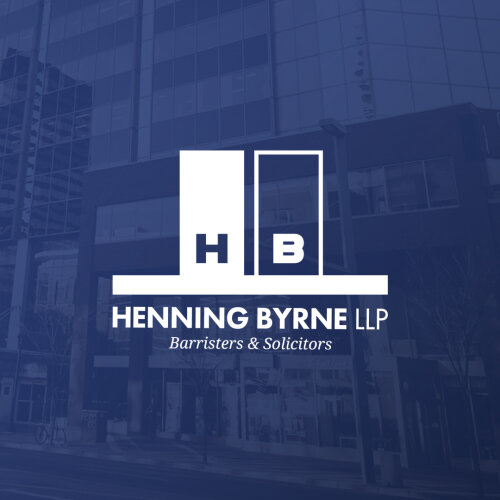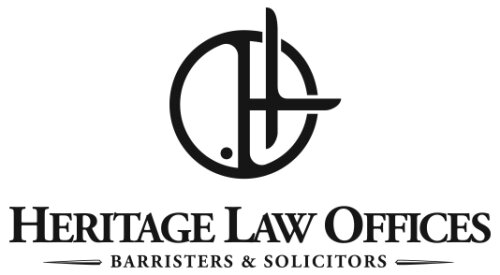Best Native People Lawyers in Edmonton
Share your needs with us, get contacted by law firms.
Free. Takes 2 min.
List of the best lawyers in Edmonton, Canada
About Native People Law in Edmonton, Canada
Native People in Edmonton, Canada refer to the Indigenous communities that have inhabited the region for thousands of years. These communities have their own unique cultural traditions, languages, and legal systems. Understanding the legal rights and issues facing Native People in Edmonton is crucial for ensuring justice and equality for all.
Why You May Need a Lawyer
There are several situations where you may need a lawyer who specializes in Native People law, including land disputes, treaty rights, discrimination, criminal law cases, and family law matters. Having legal representation can help protect your rights and navigate complex legal processes.
Local Laws Overview
Local laws in Edmonton that are relevant to Native People include the Indian Act, treaties, land claims, self-governance agreements, and human rights legislation. These laws govern various aspects of Indigenous rights, land ownership, education, healthcare, and cultural preservation.
Frequently Asked Questions
What rights do Native People in Edmonton have?
Indigenous people in Canada have constitutionally protected rights, including treaty rights, land rights, and the right to self-governance.
Can Native People pursue land claims in Edmonton?
Yes, Indigenous communities in Edmonton can file land claims to assert their traditional territories and seek restitution for past injustices.
How can I support Indigenous rights in Edmonton?
You can support Indigenous rights by educating yourself, advocating for policy changes, and respecting Indigenous cultures and traditions.
Can Native People in Edmonton practice their own legal traditions?
Yes, Indigenous communities in Edmonton have the right to practice their own legal traditions and seek justice in their own ways.
What is the role of Indigenous organizations in Edmonton?
Indigenous organizations in Edmonton play a crucial role in advocating for Indigenous rights, providing support services, and promoting cultural preservation.
How can I learn more about Native People law in Edmonton?
You can consult legal resources, attend community events, and seek guidance from Indigenous legal experts to learn more about Native People law in Edmonton.
What should I do if I face discrimination as a Native Person in Edmonton?
If you experience discrimination, you can seek legal assistance from a lawyer who specializes in Indigenous rights to protect your rights and seek recourse.
Are there resources available for Native People in Edmonton who need legal assistance?
Yes, there are legal clinics, Indigenous legal services, and community organizations in Edmonton that provide support and guidance to Native People in need of legal assistance.
How can I get involved in supporting Indigenous rights in Edmonton?
You can volunteer, donate, advocate for policy changes, and participate in community events to support Indigenous rights in Edmonton.
What are some common legal issues faced by Native People in Edmonton?
Common legal issues faced by Native People in Edmonton include land disputes, treaty rights violations, discrimination, and child welfare matters.
Additional Resources
For additional resources related to Native People in Edmonton, you can contact the Indigenous Bar Association, Indigenous Legal Services, Indigenous organizations such as the Edmonton Native Friendship Centre, and the Office of the Treaty Commissioner.
Next Steps
If you require legal assistance in matters related to Native People in Edmonton, it is essential to seek advice from a lawyer who specializes in Indigenous rights. You can also reach out to Indigenous organizations and legal clinics for support and guidance on how to proceed with your legal issues.
Lawzana helps you find the best lawyers and law firms in Edmonton through a curated and pre-screened list of qualified legal professionals. Our platform offers rankings and detailed profiles of attorneys and law firms, allowing you to compare based on practice areas, including Native People, experience, and client feedback.
Each profile includes a description of the firm's areas of practice, client reviews, team members and partners, year of establishment, spoken languages, office locations, contact information, social media presence, and any published articles or resources. Most firms on our platform speak English and are experienced in both local and international legal matters.
Get a quote from top-rated law firms in Edmonton, Canada — quickly, securely, and without unnecessary hassle.
Disclaimer:
The information provided on this page is for general informational purposes only and does not constitute legal advice. While we strive to ensure the accuracy and relevance of the content, legal information may change over time, and interpretations of the law can vary. You should always consult with a qualified legal professional for advice specific to your situation.
We disclaim all liability for actions taken or not taken based on the content of this page. If you believe any information is incorrect or outdated, please contact us, and we will review and update it where appropriate.









